<< Previous | Displaying results 651-675 of 6769 for "" | Next >>
Both of Selma's Jewish parents, Daniel Schwarzwald and Laura Litwak, had been raised in the industrial city of Lvov. As many different nationalities lived in Lvov, Selma's mother and father could speak many languages--Polish, Russian, German and Yiddish. In running his successful lumber business, Daniel also occasionally used English. 1933-39: Selma's parents married in April 1935 and she was born two years later. Her father was afraid that there might be a war and wanted to move the family to safety in…
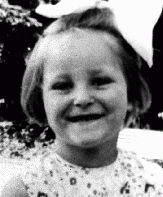
Max was born to a Jewish family in the Austrian capital of Vienna. When he was a small child his family moved to Przemysl, an urban center in southeastern Poland with a largely Jewish population. Max spent the remainder of his childhood there; his parents ran a small grocery and cafeteria to support their five children. 1933-39: The Germans reached Przemysl on September 14, 1939. It was a brilliant sunny day when planes suddenly appeared; Max's family thought the planes were their own until they began…
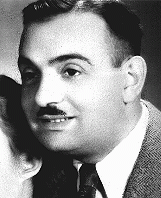
Mojsze, his wife Raizel and their three children lived 35 miles east of Warsaw in the small, predominantly Jewish town of Kaluszyn. Mojsze had gone to Jewish schools and supported Zionist ideals. By the early 1930s, he owned a wholesale grocery store, a restaurant and a gas station, all of which were located on the heavily traveled main road. 1933-39: Mojsze is at the World's Fair in Paris with his sister, Ruchel. She immigrated here in the 1920s with her husband, who owns a successful tailor shop. When…
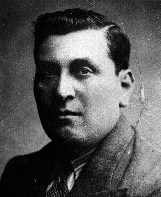
Raizel lived with her husband, Mojsze, and their three children in the small, predominantly Jewish town of Kaluszyn, which was 35 miles east of Warsaw. By the 1930s, Mojsze owned a grocery store, a restaurant, and a gas station, all of which were located together on the heavily traveled main road. The family lived in rooms in the same building as their business. 1933-39: Every day Raizel prepares the roast goose served in the family's restaurant. They have a bustling business, as many truck drivers stop…
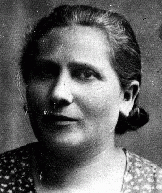
Chaie Sura was the youngest of three children born to Jewish parents living 35 miles east of Warsaw in the small, predominantly Jewish town of Kaluszyn. Her father owned a wholesale grocery store, a restaurant and a gas station, which were located together on the busy main road. The Kisielnicki family lived in rooms in the same building as their business. 1933-39: When Germany invaded Poland several days ago, Chaie Sura's father and brothers fled eastward towards the USSR with other Jewish men who were…
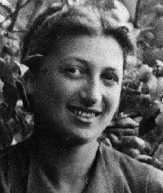
The oldest of three children, Abram was born to Jewish parents in the small, predominantly Jewish town of Kaluszyn, 35 miles east of Warsaw. Abram's father owned a wholesale grocery store, a restaurant and a gas station, all of which were located on the heavily traveled main road. Abram went to public elementary school and also received religious instruction. 1933-39: Abram was 21 when the Germans invaded Poland. Abram, his father, and his brother Majlech fled eastward towards the Soviet Union because…
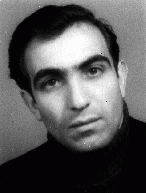
The second of three children, Majlech was born to Jewish parents living 35 miles east of Warsaw in the small, predominantly Jewish town of Kaluszyn. Majlech's father owned a wholesale grocery store, a restaurant and a gas station, all of which were located on the heavily traveled main road. Majlech attended public elementary school and also received religious instruction. 1933-39: Majlech and his pals, Mindele, Sara and Adam loved to discuss politics. They'd heard the Polish propaganda claiming that…
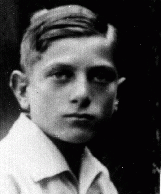
Idzia was the older of two girls born to Jewish parents who lived 35 miles east of Warsaw in the small predominantly Jewish town of Kaluszyn. Idzia's father owned a liquor store and her mother was a housewife. Idzia was close friends with a group of Jewish teenagers who went to the same public school and spent much of their free time and vacations together. 1933-39: Normally, Idzia goes out with her friends on pleasant summer evenings. They like to stroll down the main street together and visit the sweets…
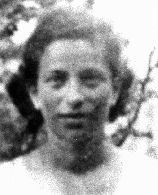
Ezra was born to a Jewish family in the Bavarian city of Wurzburg. In the summer of 1929, his father, a third-generation rabbi, accepted a position as a district rabbi, guiding 12 congregations in Upper Silesia. In primary school, Ezra, who showed a keen interest in chemistry, was often harassed by his schoolmates for being Jewish. 1933-39: Because of his "Nordic" features, Ezra was able to frequent places where Jews couldn't go. In 1938, one year after he entered a Jewish secondary school in Berlin, the…
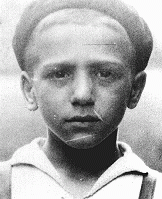
Frederic was born to a Jewish family in Czernowitz (Chernovtsy). His father was head clerk in a lawyer's office and his mother was a pianist. Frederic's parents were active in Czernowitz's sizable Jewish community. In 1930 Frederic began medical studies at the German University in Prague, Czechoslovakia. 1933-39: Frederic left Prague in 1933. He went to France and then Italy to finish his studies and graduated in 1936. He wanted to leave Europe to escape Hitler and tried to do so by applying to the…
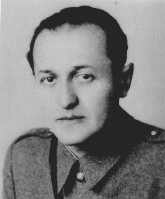
The oldest of five children, Johanna was born to Jewish parents living in a small town near Cologne. Her father owned a cigar factory. After Johanna graduated from high school, she worked in a bank in Cologne. At 22 she married Carl Heumann and the couple settled in the village of Hellenthal near the Belgian border. There they owned a general store. The couple had two daughters, Margot and Lore. 1933-39: A year ago Johanna's family moved to nearby Bielefeld, and she enrolled Margot and Lore in the city's…
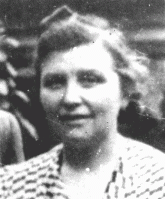
Nina was born to a Jewish family in the Polish town of Rokitnoye. Her father built ovens. Nina's family was very diverse: her father was an Orthodox Jew, her brother was a militant Zionist, and her mother leaned towards communism. Nina attended a Jewish school in the town. 1933-39: In September 1939 the Soviet Union invaded the eastern half of Poland. All businesses were quickly nationalized and property was seized. The Soviets distributed most of the town's wealth to the poor in the area. Nina's mother…
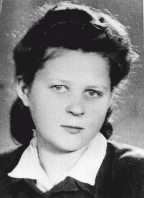
Raised in a Jewish family, Josef lived with his wife, Feiga, in Kovno, a cosmopolitan city that was picturesquely situated at the juncture of two rivers and was known as the "Little Paris." Josef was a barber, his wife was a beautician, and together they ran a shop in downtown Kovno. 1933-39: Every day Josef and Feiga walk to their shop which is not far from their house. It's hard work being a barber--Josef is on his feet most of the day, seven days a week including a couple of hours on Sunday. He has…
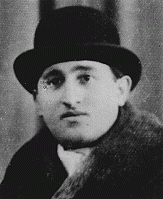
The older of two girls, Margot was born to Jewish parents living in a village close to the Belgian border. The Heumanns lived above their general store. Across the street lived Margot's grandfather, who kept horses and cows in his large barn. When Margot was 4, her family moved to the city of Lippstadt. As a young girl, she learned to swim in the Lippe River, which flowed behind their garden. 1933-39: When Margot was 9, her family moved to the nearby city of Bielefeld, where she was enrolled in public…
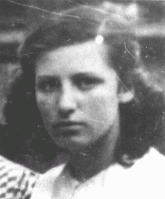
Sabina was one of four children born to a Jewish family in the Polish town of Ulanow. Her father was a landowner and cattle merchant in the area. The Jewish community in Ulanow was active, with many of its own organizations and a large library. Sabina attended public school in the morning and a private Jewish school in the afternoon. 1933-39: The public school was open Saturdays, but since it was the Jewish Sabbath, Sabina and her siblings didn't attend. They'd ask their Christian classmates for the…
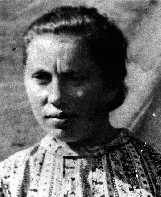
The Blonder family lived in a two-room apartment in the back of a store. Edek was the third of eight children. His father eked out a meager living by tutoring students in Jewish subjects, and beginning in 1930 he worked distributing food vouchers to the poor. 1933-39: After graduating from secondary school, Edek was invited to play soccer professionally on the local Club Maccabi team, which was part of a Jewish soccer league. Club Maccabi arranged for him to attend trade school to learn cabinet making at…
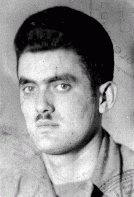
Jules grew up in a Jewish family in the industrial city of Radom, which had a large Jewish population and was known for its armaments industry. The Zajdenwebers spoke Polish and Yiddish at home. Jules' father was a textile salesman and his mother was a corset maker. Jules, whose nickname was Ulek, attended public schools in Radom and was a member of a Zionist youth organization. 1933-39: Jews weren't safe in certain neighborhoods. Some classmates at Jules's Polish state secondary school belonged to…
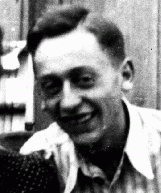
Sandor grew up in Budapest where his father was a furrier. Sandor attended a Jewish school until he was 14 and then entered a business school run by the chamber of commerce. After he graduated in 1929, he entered his father's business. Sandor then spent a year studying at the Sorbonne in Paris before entering university in Budapest to study economics. 1933-39: As a Jew, Sandor was in the minority at the university because anti-Jewish laws enacted in the 1920s had set quotas that limited Jewish applicants.…
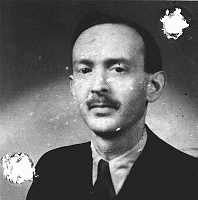
Frieda grew up in a crowded one-room house in Sokolow Podlaski, a small manufacturing center in central Poland. Frieda's father had died when she was two years old, and her mother had then moved back to her hometown of Sokolow Podlaski, where she opened a poultry shop. The Altmans were a Yiddish-speaking, religious Jewish family, and Frieda was the youngest of four children. 1933-39: German troops entered Frieda's town on September 20, 1939. She was huddling, frightened, with family and friends in a…
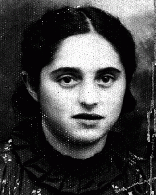
Charles was born to a Jewish family in Prague, the capital of Czechoslovakia. His father owned several shoe factories there. Prague's Jewish minority enjoyed a great deal of cultural freedom because of the new democratic Republic. Though antisemitism still existed in Czechoslovakia, Prague was a relatively tolerant city. 1933-39: Charles' father's business thrived in Prague, and they lived well. Charles enjoyed painting as a child and decided to study at an art school in the city. On the morning of March…
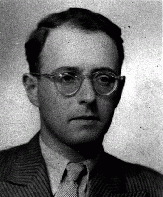
Fryda was one of five children born to religious Jewish parents in the industrial city of Lvov. She grew up in the same building as her paternal grandparents. Fryda attended public and private schools in Lvov, and grew up in a non-Jewish neighborhood, speaking Polish, German and Yiddish. 1933-39: When Fryda finished secondary school, she could not go to the university like her older siblings because Polish universities had instituted discriminatory quotas for Jews. In September 1939 the Germans invaded…
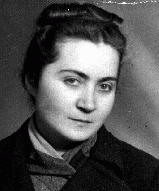
The third of five brothers, Welwel was born to Jewish parents who lived 35 miles east of Warsaw in the small predominantly Jewish town of Kaluszyn. His father was a cattle merchant who purchased cows and sold the meat to butchers in the Warsaw region. Welwel spent most of his free time with a group of Jewish friends who lived in his neighborhood and who attended the same public school. 1933-39: Every summer evening Welwel, Abram Kisielnicki, and some other pals, like to stroll along Kaluszyn's main…
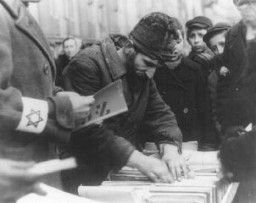
David was one of six children born to religious Jewish parents in Rona de Jos, a town in northwest Romania. The Jeghers subsisted through a variety of enterprises. Besides farming, they bottled their own wine and brandy and produced dried fruit for distribution in Romania and in parts of Czechoslovakia and Hungary. David's father also ran a local transportation and delivery service. 1933-39: Religious school was from 6:30 to 8:00 a.m. David's mother would wait outside the building with some breakfast for…
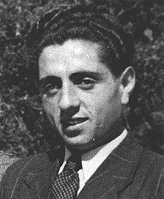
Gabriele was the only child of Jewish parents living in the German capital of Berlin. Her grandfather owned a pharmacy and a pharmaceuticals factory, where Gabriele's father also made his living. 1933-39: In 1938 the Nazis forced Ruth's grandfather to sell his factory and pharmacy for very little money to an "Aryan" German. After that, her father decided they should move to Amsterdam where it was safer for Jews. She was 5 years old and wanted to stay in Berlin. She didn't understand why she had to leave…
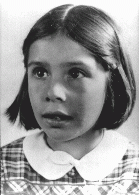
Fritz was the youngest of two sons born to a Jewish family in the German capital of Berlin. In the late 1920s he earned a doctorate in chemistry and pharmacy. In 1931 he married Ilse Teppich, and in 1933 the couple had a daughter, Gabriele. 1933-39: Fritz worked in his father's pharmacy until 1938, when the Nazis forced them to sell the business for a fraction of its value to an "Aryan" German [Aryanization]. Leaving his parents behind was agonizing, but concern for the safety of his wife and daughter…
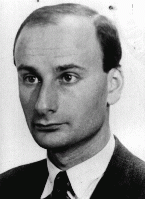
We would like to thank Crown Family Philanthropies, Abe and Ida Cooper Foundation, the Claims Conference, EVZ, and BMF for supporting the ongoing work to create content and resources for the Holocaust Encyclopedia. View the list of donor acknowledgement.